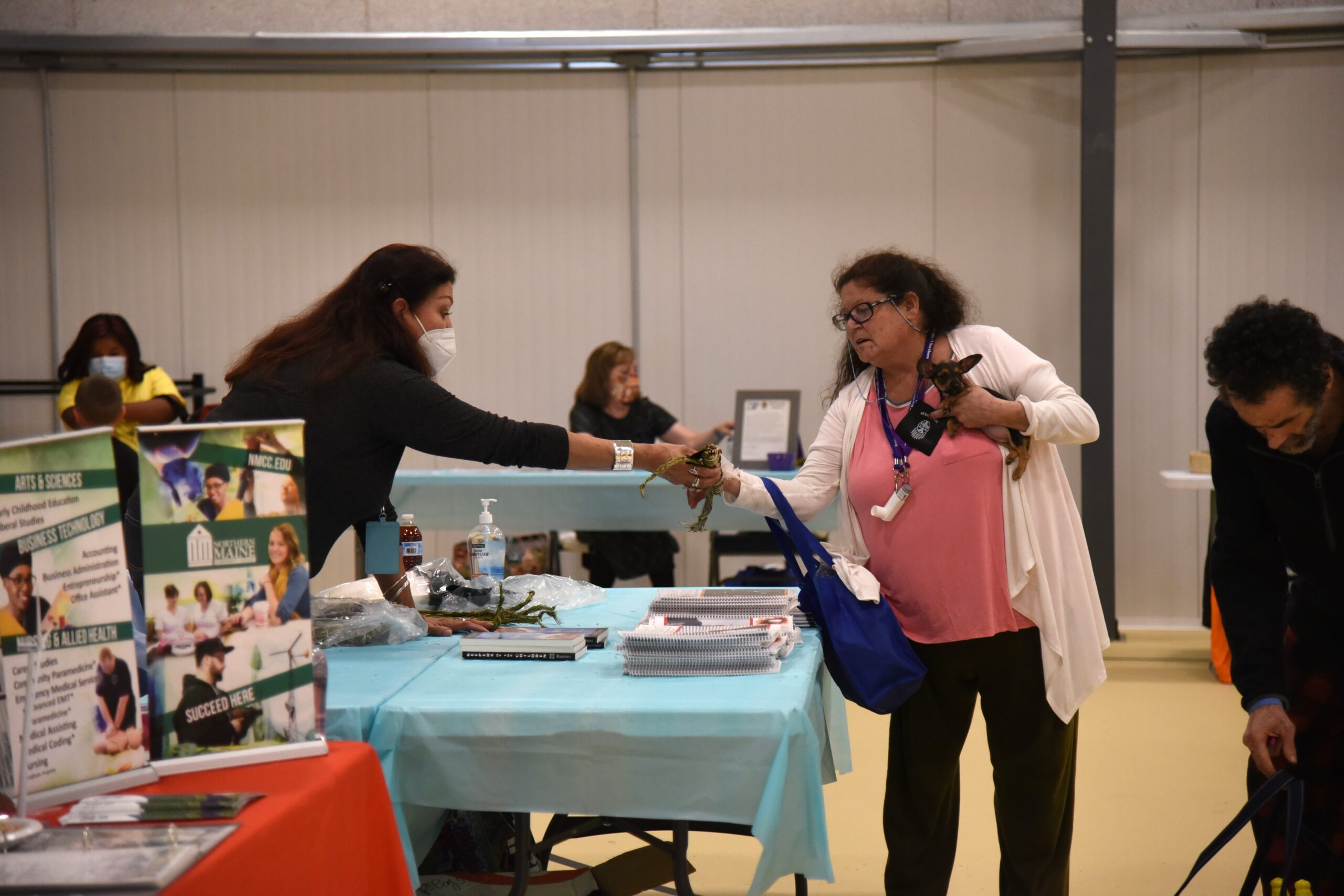
PRESQUE ISLE, Maine — The Micmac Family Health Clinic welcomed people to its annual Health Fair for the first time since the start of the COVID-19 pandemic.
The event was held Saturday at the Micmac Wellness Center, and provided information on a wide variety of health, wellness and tribal education programs offered in the Aroostook area.
The health fair serves two purposes for the local Micmac community: It brings the community together, and helps people and families learn about wellness topics while obtaining important health checks.
“The Health Fair is something we’ve always done and the reason we’ve always done was it allows us to be able to bring people in,” said Fred Getchell, a tribal council member and president of the Boys and Girls Club of Bordertowns. “[It] lets them meet the care providers and allows us to do more screenings.”
Visitors could obtain blood pressure and glucose screenings and receive flu shots. Other tables provided information on mental health, information on the negative effects of cigarette smoking, and a tribal opioid response on overdoses with training and narcan handouts.
From 23 different tables in the center’s gym, the Health Clinic handed out information from its various departments, from behavioral health to community health. Wabanaki Public Health and Wellness, Northern New England Poison Center, the Mi’kmaq Nation Community Support Services, Indian Child Welfare Act with Director Norma Saulis, and the Aroostook Band of Micmacs Education Department were also included.
Volunteers from the clinic included Substance Use and Affected Other Counselor Kelley Johnston and Health Director Theresa Cochran.
“The goal is for us to provide screening to our community members who may or may not have been seen by a provider recently,” Cochran said. “It provides them that opportunity to engage with the providers and the screening staff as well as educating them on the importance of getting those health screenings.”
The original idea started when the Micmac Family Health Clinic opened, with the goal being to familiarize the 1,500 tribal members with what services the clinic provides and allow them to meet the service providers. The fair is also open to members from southern Maine and across the Canadian border.
“We get stories from them on what they’ve experienced and they helped someone recover from an overdose,” said Sandra Pictou, tribal opioid response director and behavioral health assistant.
Every year the clinic invites organizations that have participated over the years. There were a few late cancellations due to staffing issues, according to Cochran. The tribal government provided the catering services for the meals for the tribal elders, along with a bingo event held in the weight room.
“We’ve had a great turnout today, our community comes early as you can see and we’ve had the most turnout for an in-person that we’ve had in a few years. COVID left us doing drive thrus and [the Health Fair] is our very first one back in-person,” Cochran said.
A drumming group called Mawitan’ej E’pijig, which translates as “gathering of women,” played a traditional gathering song after the Health Fair started. Playing the drums were Sarah DeWitt, Glo Curtis, and Susie Lewey.
“This is a great opportunity to meet our members, talk about important health points. Today, we have the different stations for checking blood pressure, diabetes, and of course we’re offering flu shots. We have the whole gamut here,” said Sarah Phaiah, a nurse working at the clinic for the past six weeks.









